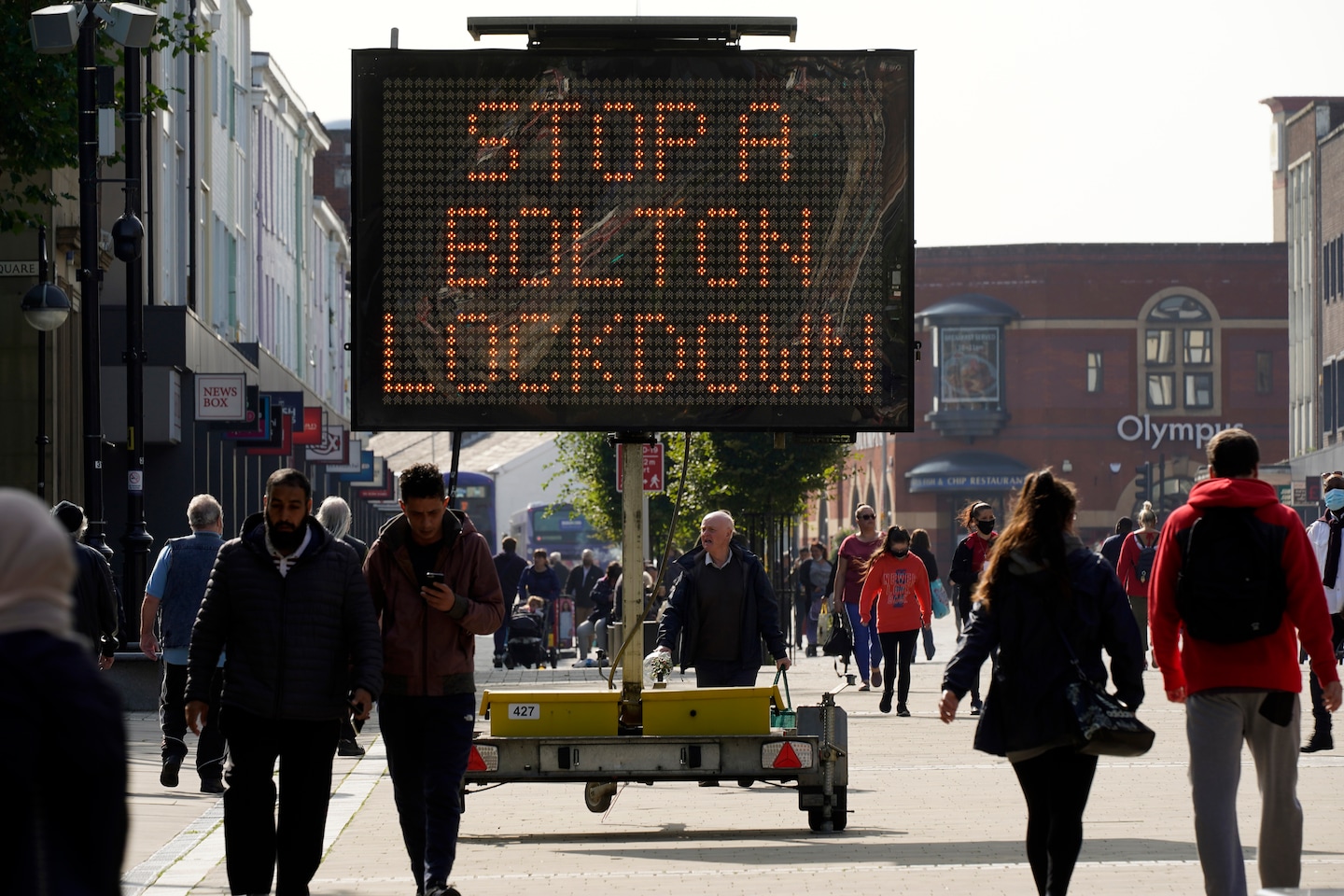European countries opt for local measures over national shutdowns as coronavirus cases surge

On Thursday, a top World Health Organization official warned of a “very serious situation” stemming from a resurgence of the coronavirus in Europe, with case counts swinging upward after having been under control for much of the summer.
“More than half of European countries have reported a greater than 10 percent increase in the past two weeks,” Hans Kluge, the WHO’s regional director for Europe, told reporters at a briefing. The caseload in seven countries has doubled in the past two weeks, he said.
“Although these numbers reflect more comprehensive testing, it also shows alarming rates of transmission across the region,” Kluge said. The rising numbers, he said, should serve as a “wake-up call for all of us.” For now, he said, the bulk of the increase has been among younger, generally more resilient portions of Europe’s population, but numbers for older and more vulnerable people are also increasing.
But even in countries where hospitalization rates are rising rapidly, measures imposed this week have largely been smaller in scale and more targeted than those implemented in the spring, when stringent responses resulted in low case numbers in Central and Eastern European countries that have begun to do poorly. Spain and France now have infection rates beyond that of the United States, which leads the world in total number of infections.
England imposed contact restrictions Monday, limiting group gatherings to six people. Nearly 2 million people in England’s northeast are once again restricted from socializing with people outside their households or “support bubble,” after new rules took effect Friday.
Similar restrictions are set to take effect Tuesday in parts of England’s North West, Midlands and West Yorkshire regions. Pubs, restaurants and other venues in the affected regions will be required to shut at 10 p.m. each night until the measures are revoked.
Meanwhile, in Spain, Health Minister Salvador Illa urged authorities in Madrid on Thursday “to do whatever needs to be done to control the situation,” as hospitals there were reaching capacity.
Madrid’s regional government said this week that it may reimpose “lockdowns” in certain parts of the capital this weekend, but later appeared to downplay the extent of the plans, saying officials were seeking to “reduce mobility and contacts,” according to the Guardian.
Spain’s El Pais newspaper reported that the possibility of a local state of emergency — similar to the measures imposed nationwide in spring — remained on the table.
In France, which this month recorded its highest daily count of confirmed cases, officials worried about expanding outbreaks in Lyon and Nice. Health Minister Olivier Véran has called on local officials in both cities to submit plans by this weekend on how they will address the outbreaks.
In three other places — Marseille, Bordeaux and the French overseas region of Guadeloupe — new restrictive measures have taken effect.
Other countries, including two that were considered success stories in the early stage of the pandemic, were pondering their next moves Friday.
In Greece, which saw only few infections in the spring, epidemiologists warned this week that if cases continue to spiral upward in the coming days, a restriction of movement in and out of the greater Athens area would be inevitable. More than a third of the country’s population lives in that area.
Earlier this week, Athens mandated masks in work spaces and temporarily banned live music, Reuters reported.
Coronavirus cases also continued to surge in the Czech Republic, with a record 3,130 new infections confirmed Thursday — a total higher than the number of new daily confirmed cases in neighboring Germany, a country that has eight times the Czech Republic’s population.
In response to the recent surge, the Czech government has imposed some restrictions, including the closure of restaurants and bars at midnight, effective this weekend, and is reintroducing distance learning for universities in Prague.
But the measures — which still allow for indoor events with up to 500 participants — are far more relaxed than those implemented at the peak of the crisis in the spring, as officials are seeking to keep the economy open.
Michael Birnbaum in Riga, Latvia; Jennifer Hassan in London, and Ruby Mellen in Washington contributed to this report.






